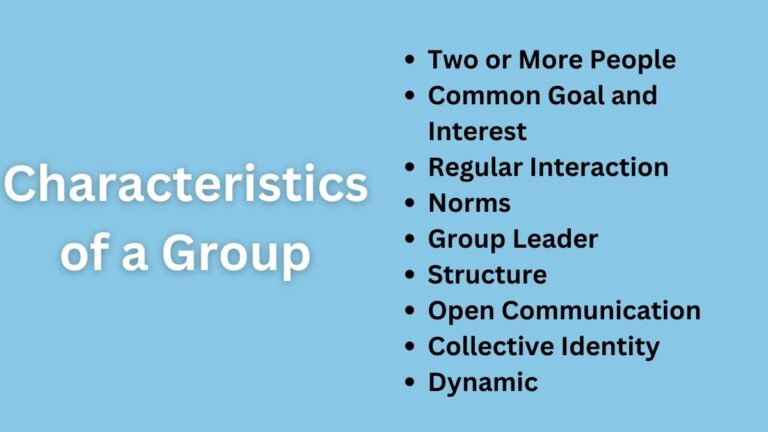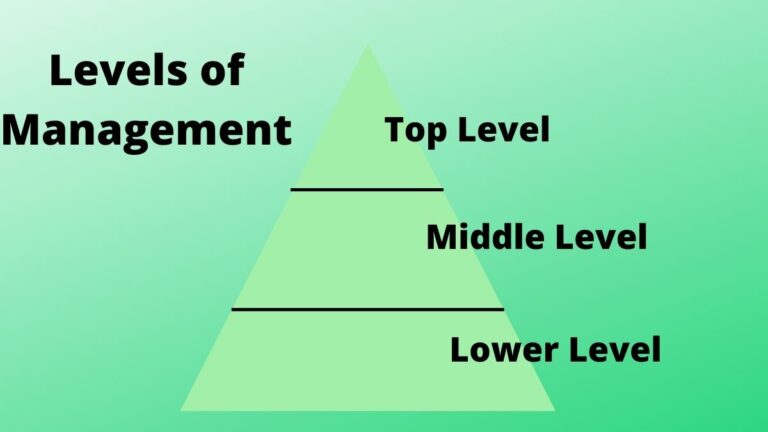What is Leadership? Definition, Features, Styles, Qualities, and Importance
What is Leadership?
Leadership is the art of influencing and motivating the interests of people toward the accomplishment of common goals. In an organizational setting, it is a process of guiding and influencing employees to achieve the set objectives.
Leadership more rests on an individual power than his position i.e. authority. It includes making sound and challenging decisions and visions and the ability to create acceptance among employees or followers.
In a business setting, it is about influencing subordinates’ will, abilities, and efforts for the attainment of predetermined organizational goals. The main concern of organizational leadership is subordinates or employees.
People who direct command or lead subordinates are called leaders and people who follow direction, order, or leadership are called followers. Leaders, followers, and situations are the major components of leadership.
In an organization, in general, by hierarchy, managers are leaders of supervisors, and supervisors are the leaders of first-line employees. Leadership is one of the important functions of management. It states that a manager along with a manager should also be a good leader.
To be a successful leader, the manager should have the ability to see both small and big pictures. He should possess the qualities like foresight, initiative, drive, self-confidence, fitness, empathy, patience, communication, a positive attitude, and personal integrity.
Characteristics of Leadership
It is a function of management, without which it is difficult in the workplace to properly utilize the organizational resources and hence the achievement of organizational objectives. The following are the main features of effective leadership.
Leaders and Followers
Leadership is the essence of the relationship between leaders and followers. No one can be a leader without followers. There must be followers for a person to be a leader.
Read Also: Levels of Management
Ability To Influence
It is the ability to influence the behavior and efforts of subordinates. Leaders by position can not be effective if they can not influence their subordinates or followers.
Common Objectives
Leaders and followers must be guided by organizational goals. They should have a common objective to achieve. Leaders should be able to drive the efforts of all subordinates to achieve those common objectives.
Continuous Process
It is a continuous management function. It continues till the existence of the organization. Managers should play leadership roles in the regular operations of the organization till it exists.
Rest On Power
Leadership rests on power instead of formal authority. It is a personal quality of an individual.
Also Read: 8 Key Differences Between Power and Authority
Difference Between a Leader and a Manager
A manager is someone who is in charge of organizing and integrating the efforts of those who are involved in the business operations of the organization. Managers strive to accomplish organizational objectives by making efficient and effective use of the few physical and human resources available.
A leader is a person who influences, encourages, and motivates followers. Leaders set the vision, make followers believe in it, and direct their efforts to achieve the vision.
The following table briefly differentiates between the managers and leaders.
| Manager | Leader |
| Makes the plan and integrates the activities. | Formulate the vision. |
| Short-term focus. | Long-term focus. |
| Motivates subordinates. | Direct the followers. |
| Managers are realistic. | Leaders are idealistic. |
| Enforces policies. | Projects procedures. |
| Controls, Supervises. | Empowers people. |
| Manages details. | Manages change. |
| Enforces uniformity. | Tolerates diversity. |
| Works within the status quo. | Challenges the status quo. |
Styles of Leadership
Every leader has a unique leadership style which is what differentiates him from others. Depending upon the time, situation, and attitude of leaders there are different leadership styles can be found in management practice. Some common styles are mentioned below:
Autocratic Style
Total power is centralized at the top under an autocratic leadership style. Such leaders hold complete power and accountability for formulating plans and policies. Leaders never consult followers before making any decisions.
An autocratic leader demands immediate, unconditional adherence from their followers. Leaders impose one-way communication and have information control.
Democratic Style
With the support of their followers, leaders make decisions under a democratic leadership style. Leaders who believe in a democratic style delegate authority to their subordinates.
Democratic leaders enjoy asking their people for opinions and counsel when making decisions. Follower discussion, engagement, and involvement in the decision-making process are strongly encouraged.
Laissez Fair Style
The French meaning of the word “Laissez-faire” is “allow to do”. Under this style, a leader entrusts decision-making authority to subordinates. The leader delegates all authority to subordinates and subordinates take necessary decisions themselves.
Leaders do not like to have a direct intervention with subordinates in decision-making. Here, in laissez-faire, subordinates are self-directed, self-controlled, and self-motivated.
Situational Style
This style advocates that there can not be a universally applicable style of leadership. It can be different depending on time, place, and situation. According to situational leadership style, leaders should change their style according to changes in situational variables or changes in the environment.
Qualities of a Good Leader
Being in a leader’s position and having a leader’s qualities are two totally different things. A leader must possess some leadership qualities to be a great leader. The following are some qualities a leader requires to have.
- Physical Fitness – Leaders should be physically fit and have a good fit of health. Leaders should have full energy, vigor, vitality, and enthusiasm.
- Vision and Foresight – Great leaders are visionaries. They clearly see the future, and they know what they are doing, and how to achieve their vision.
- A Clear Sense of Purpose – Good leaders have the ability to define and share the vision, mission, and objectives with their followers.
- Good Judgment – A good leader has the ability of good judgment. He judges the employee’s performance and environmental influence based on the technical factors not being subjective.
- Moral Integrity – Leaders should have good moral character. They should own the qualities of honesty, loyalty, trustworthiness, devotion, and fairness in implementing the organizational plans and policies.
- Technical Competency – Managerial leaders should be technically competent. They should have adequate knowledge about the related jobs.
- Managerial Qualities – Leaders must have all managerial qualities like planning, organizing, directing, decision-making, controlling, etc. They should be decisive.
- Flexibility – Good leaders also understand the importance of being adaptive. They are flexible enough to adapt to known and unknown changes.
- Creativity – Leaders should be creative and innovative like entrepreneurs. They should have a good knowledge of solving crisis situations creatively.
- Accountability – Good leaders do not blame others for the results of their actions. They are accountable for the activities they do and the results of such activities.
Importance of Leadership
Leadership is an important function of management that helps to achieve greater productivity and performance in the organization. The following are some reasons that state why leadership is important.
Sets Direction
While establishing performance standards, resolving various issues, setting and outlining strategies, organizing group activities, etc., leaders direct their followers to exert the greatest efforts and collaboration in order to accomplish predetermined goals.
Leaders define the action plan and provide followers with instructions. Leaders determine the organization’s ultimate goal and direct organizational efforts toward achieving it.
Related: Directing Function of Management
Motivation
Through financial and non-financial support and incentives, leaders are accountable for fostering a motivating workplace. It is commonly believed that a leader’s success is determined by the extent of his or her followers’ loyalty.
A natural outcome of effective leadership is the development of a productive workplace environment. Therefore, it is beneficial to motivate staff to give the organization’s goals their all.
Improved Communication
Leadership requires a leader to have good communication skills. Good communication is a must for the leader to entrust his vision to his followers. It enables flowers to understand the vision the way the leader wants as such both the leader and followers mutually devote their efforts to the same target.
Encourage Teamwork
The corporate goals might not be reachable just through individual efforts. Therefore, leaders have a duty to encourage teamwork among all of their followers. They ought to unite everyone behind the company’s common objective.
Creates Confidence
Leaders are by nature great influencers. Leaders generally level up followers’ confidence by making them understand better themselves, assigning them the right duties, and motivating them to do more than they normally do.
Read Next: Functions of Leadership
Sajan Kushmi is a content writer with more than 4 years of experience. He holds BIM Degree. He write on the topics related to Management, Marketing, and Entrepreneurship.






